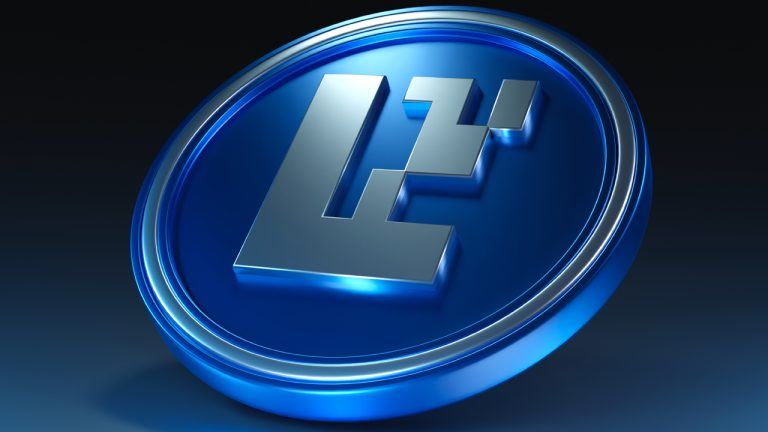 On Monday, eigenlayer (EIGEN) made its debut on major exchanges, hitting a peak of $4.47 per token. However, by 1:30 p.m. EDT on Oct. 1, the price had dipped 12%, settling at $3.90 per coin. By 2 p.m. it was exchanging hands for $4.30 per unit. EIGEN Token Hits Crypto Market A new contender has […]
On Monday, eigenlayer (EIGEN) made its debut on major exchanges, hitting a peak of $4.47 per token. However, by 1:30 p.m. EDT on Oct. 1, the price had dipped 12%, settling at $3.90 per coin. By 2 p.m. it was exchanging hands for $4.30 per unit. EIGEN Token Hits Crypto Market A new contender has […] According to recent data, more than 14 million ether (ETH) is now locked in liquid staking derivatives (LSD) protocols. Over the past 12 days, the amount of ETH deposited into these platforms nudged upward by 0.643%, bringing the total to 14.08 million ETH. Ethereum Liquid Staking Surges to 14M Ether, 90,000 Added in 12 Days […]
According to recent data, more than 14 million ether (ETH) is now locked in liquid staking derivatives (LSD) protocols. Over the past 12 days, the amount of ETH deposited into these platforms nudged upward by 0.643%, bringing the total to 14.08 million ETH. Ethereum Liquid Staking Surges to 14M Ether, 90,000 Added in 12 Days […] Over the past 18 days, 27 distinct liquid staking derivatives (LSD) protocols have experienced withdrawals amounting to approximately 50,000 ether, valued at $146.72 million. The most significant reductions occurred in the LSDs Swell and Mantle, with Swell’s ether holdings decreasing by 23,078 ether since April 28, 2024. LSD Protocol Reductions Continue Despite Minor Gains for […]
Over the past 18 days, 27 distinct liquid staking derivatives (LSD) protocols have experienced withdrawals amounting to approximately 50,000 ether, valued at $146.72 million. The most significant reductions occurred in the LSDs Swell and Mantle, with Swell’s ether holdings decreasing by 23,078 ether since April 28, 2024. LSD Protocol Reductions Continue Despite Minor Gains for […] In the last two weeks, liquid staking derivative (LSD) protocols have experienced a decline of 60,000 ether valued at over $198 million, with Lido accounting for 40,000 of the ETH withdrawn. LSD Sector Snapshot: $198 Million Ether Withdrawn in 2 Weeks Liquid staking has been witnessing a decrease; on April 15, 2024, the 27 distinct […]
In the last two weeks, liquid staking derivative (LSD) protocols have experienced a decline of 60,000 ether valued at over $198 million, with Lido accounting for 40,000 of the ETH withdrawn. LSD Sector Snapshot: $198 Million Ether Withdrawn in 2 Weeks Liquid staking has been witnessing a decrease; on April 15, 2024, the 27 distinct […] Following a significant downturn in March, liquid staking derivatives (LSD) protocols experienced another withdrawal of 380,000 ether, valued at roughly $1.17 billion, from leading LSD platforms since April 1, 2024. Ethereum Exodus: $1.17 Billion Pulled From LSD Platforms In the initial two weeks of April, a notable reduction of 380,000 ether was observed in the […]
Following a significant downturn in March, liquid staking derivatives (LSD) protocols experienced another withdrawal of 380,000 ether, valued at roughly $1.17 billion, from leading LSD platforms since April 1, 2024. Ethereum Exodus: $1.17 Billion Pulled From LSD Platforms In the initial two weeks of April, a notable reduction of 380,000 ether was observed in the […] According to the most recent data, within the last 22 days, the volume of staked ether locked across various liquid staking derivative token platforms has seen a decline of 2.45%. This downward trend was observed across 27 unique platforms, culminating in a reduction of 340,000 ETH, valued at approximately $1.18 billion. $1.18 Billion Worth of […]
According to the most recent data, within the last 22 days, the volume of staked ether locked across various liquid staking derivative token platforms has seen a decline of 2.45%. This downward trend was observed across 27 unique platforms, culminating in a reduction of 340,000 ETH, valued at approximately $1.18 billion. $1.18 Billion Worth of […] Throughout this month, bitcoin and ethereum have risen to their highest valuations in years. These two pivotal crypto assets have substantially influenced the cryptocurrency market, with bitcoin currently holding a 51.9% market dominance and ethereum at 17% as of mid-March 2024. Furthermore, in recent years, derivative tokens of bitcoin and ether have garnered significant popularity. […]
Throughout this month, bitcoin and ethereum have risen to their highest valuations in years. These two pivotal crypto assets have substantially influenced the cryptocurrency market, with bitcoin currently holding a 51.9% market dominance and ethereum at 17% as of mid-March 2024. Furthermore, in recent years, derivative tokens of bitcoin and ether have garnered significant popularity. […]
HashKey Capital highlighted risks such as reduced competition, increased risk of censorship, decreased security and collusion by big players.
As it continues to grow, liquid staking brings considerable risks to the space and needs better decentralization, according to a report published by digital asset firm HashKey Capital.
According to the report, the overall liquid staking derivatives (LSD) market has surged to more than $22 billion in total value locked in 2023. In addition, the market capitalization of LSD projects has reached $18 billion.

While the growth of LSD protocols may be good for their respective communities and tokenholders, it also could be a double-edged sword. According to the report, it could harm the Ethereum ecosystem in various ways.
As the table above shows, many LSD protocols rely on a small number of node operators that centralize a large number of validator nodes. According to the report, the number of node operators should be a “point of concern for centralization.”
Related: Liquid staking claims top spot in DeFi: Binance report
The report notes that centralization in liquid staking can have several harmful effects on the ecosystem, such as reduced competition and increased risk of censorship. According to the report:
“There is a heightened possibility of censorship with centralized staking players, as they may be subject to incentives or regulatory pressure to censor transactions. This can potentially result in a disruption of the trust within the network.”
In addition, as it gets further centralized, there are risks of decreased security, as big staking players can make it easier for attackers to carry out 51% attacks. Moreover, there’s also an increased risk of collusion.
“Centralized stakers can collude to carry out actions that go against the decentralization ethos and against the users, such as malevolent MEV extraction and frontrunning,” the report reads.
While there are centralization risks, HashKey also recognizes that most protocols are very recent and have made plans to decentralize and add distributed validator technology to their protocols for better decentralization and resiliency.
Magazine: SEC reviews Ripple ruling, US bill seeks control over DeFi, and more: Hodler’s Digest, July 16-22

A Lido team member claimed Rocket Pool is not really governed by its DAO, but Rocket Pool community members pushed back, claiming the protocol is becoming more decentralized.
A team member for Lido has accused competitor Rocket Pool of being too centralized in a July 4 social media post. Both Lido and Rocket Pool are liquid staking protocols that allow users to delegate their cryptocurrency to validators and receive derivative tokens in exchange.
According to the post from Lido's community staking lead Dmitry Gusakov, the Rocket Pool contracts are controlled by the Rocket Pool team, allowing the team to change any parameters and call any method. This means that Rocket Pool developers can increase the inflation rate to an arbitrarily large percentage or increase fees to up to 100%.
Gusakov claimed this vulnerability does not exist in Lido’s contracts, as in Lido, these actions are “fully controlled by [decentralized autonomous organization] LidoDAO.”
Rocket Pool Grants Management Committee member Waq responded to the accusation, stating that the vulnerability was already known to the team and will be fixed in the future. Waq accused the Lido team of trying to take credit for discovering an issue that was already known.
Here we go again with the "brand new" discoveries of @Rocket_Pool being super malicious again Not a single word of how the community has been working for over a year on fixing this and the progress we're making. Once we fix this, they'll rush to take the credit like always.
— Waq | Rocket Fuel (@waqwaqattack) July 4, 2023
According to Gusakov's post, the RocketStorage contract at Ethereum address 0x1d8f8f00cfa6758d7bE78336684788Fb0ee0Fa46 contains a parameter called “guardian.” Many functions in Rocket Pool contracts are also labeled as “onlyGuardian,” meaning they can only be called by the account listed in this parameter, which is currently set to the RocketPool deployer account at 0x0cCF14983364A7735d369879603930Afe10df21e.
Actions that can be performed by the “guardian” include changing the “RPL InflationIntervalRate” and the “ETH DepositFee,” implying that the team can increase the inflation rate of the Rocket Pool governance token (RPL) or remove users’ deposits by setting the fee to 100%, Gusakov stated.
Content creator Chris Blec shared the post, claiming that it proves “‘pDAO is not a DAO” or that RPL token-holders are not actually in control of Rocket Pool’s governance.
In response, RocketPool community advocate Jasper.lens stated that the community is already aware of this centralization issue, which will be patched in the upcoming Saturn upgrade. According to Jasper, the centralization occurred during a period when voting systems for Rocket Pool’s DAO were still being designed and tested. The team decided to not allow the DAO to practice on-chain voting in the initial testing phase. However, testing has now been completed, and the upcoming Saturn upgrade “is all about patching the decentralization holes.”
In a comment agreeing with Jasper.lens’ post, Waq claimed that the Rocket Pool community “has been working for over a year on fixing this” and predicted the Lido team would “rush to take the credit like always” once the problem is fixed.
Liquid staking protocols have been growing in popularity over the past few months. On May 1, blockchain analytics platform DefiLlama stated that these protocols have surpassed decentralized exchanges as the top DeFi category in terms of total value locked. On May 30, Tenet partnered with LayerZero to implement liquid staking on more blockchains in the future.

The Origin Ether app deposits Ether into Curve, Convex, stETH, rETH and sfrxETH.
A new yield farming app called Origin Ether has accumulated over $12 million in total value locked (TVL) just 14 days after launch, according to data from blockchain analytics platform DefiLlama. TVL is a metric that measures the dollar value of assets inside an app’s smart contracts.

The app was launched on May 16, according to a representative from the development team. DefiLlama data shows the app already had $793,000 locked inside its contracts before the launch, which team members or other early partners may have supplied.
Once the public launch occurred on May 16, deposits to Origin Ether (OETH) rapidly accumulated, leading to a TVL of over $13 million by May 30. This is a gain of approximately $12.6 million over 14 days.
According to the app’s official documentation, Origin Ether generates yield from Ether (ETH) by depositing it into multiple liquid staking and decentralized finance (DeFi) protocols. Specifically, it utilizes an algorithmic market operations strategy on Curve and Convex to maximize returns. Before being deposited to Curve and Convex, some of the ETH is converted into liquid staking derivatives, including Lido Staked Ether (stETH), Rocket Pool Ether (rETH) and Frax Staked Ether (sfrxETH). The protocol’s documentation states that this allows users to gain additional farming rewards from these providers.
Related: Celsius adds over 428K stETH to Lido’s lengthening withdrawal queue
Ether liquid staking protocols allow ETH holders to stake their coins with a network of providers in exchange for tokens representing those deposits. They have become more popular as Ethereum moved to proof-of-stake consensus and enabled withdrawals.
On May 1, DefiLlama reported that liquid staking protocols had become the top DeFi category, surpassing the TVL of decentralized exchanges. On May 30, cross-chain bridging protocol LayerZero partnered with the Tenet network to increase the use of liquid staking in the Cosmos ecosystem.